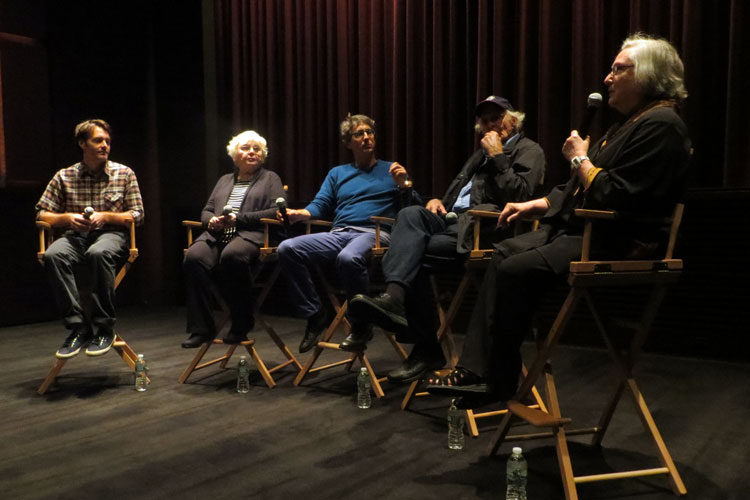The following questions and answers are excerpted from a conversation that followed the NBR screening of Nebraska.
Why did you decide to shoot this film in black and white?
Alexander Payne: You know, it wasn’t ever really a decision—it just felt right. It had to be in black and white…and while I didn’t think about it when I read the script nine years ago, when we were shooting last year at the tail end (or what we hope is the tail end) of this economic crisis, it becomes a depression-era film, in a way, because of the black and white. And it’s also just very interesting to shoot a contemporary film in black and white—it helps us see our present through that little bit of transformation.
“I’m happy to see an American film that anticipates a climax not of violence, but of kindness.”
Mr. Dern, your performance is remarkable. What was the inner life of this character, for you?
Bruce Dern: The one thing I saw on the page was that I felt Woody was inherently a fair main. If there’s any fiber still awake in him, it’s a sense of fairness. And out of that, he expects people to tell him the truth, and to be what they say they are. And if he’s to make a call on it, you know, some tell the truth and some don’t. And that’s the way he judges his son, wife, and everybody else… A friend of mine sent me a text after seeing the film last night, and she said, “what a great treat it is that you found a director who was willing to let you discover silence at your leisure.” And it’s a perfect comment. Because [Alexander Payne] lets you explore where you’re going as a character. And for Woody, it was a lot about silence.
What did you find was the most challenging thing about playing a character who was supposed to be more “real,” as opposed to a comedy character?
Will Forte: The trickiest thing to me were the times when there’d be what seemed like maybe a joke, and I would overthink it—am I supposed to hit this joke? Does the character know how to tell a joke…?
Payne: He’d ask me: “Should I play the joke on this, or not?”
Forte: And then you realize, just say the words! Just be there, be present in the scene, and just say it how the character would say it.
Dern: If there’s an indelible image for me from this film, it is the courage of Will to abandon the familiarity of working in a certain way as an actor and to throw himself into Alexander’s arms. It’s his ability to sacrifice what was safe in order to take a risk.
How do you handle auditions for non-actors?
Payne: Well, it’s like any audition—here are the sides, please come in and read… not the whole script, just the sides. And then get them talking a little bit, just naturally. And then bring them in two, three, four times, and see if they remain “bullet proof.” By that I mean, unfazed by being recorded, unselfconscious, etc. John Jackson – the casting director – and I have developed a pretty good sense of who will present a vivid and reliable version of themselves on the day we’re shooting.
Looking at this film now, what does it mean to you?
Forte: I am part of a movie that I never thought I’d get a chance to be a part of. I realize that not everybody gets an opportunity like this, and I’m so thankful.
June Squibb: I think that we see something different each time we see it. And I think that’s the biggest complement for this film—it’s just never ending, what you find in it.
Payne: I don’t know about the virtues of the film, but I’m happy to see an American film that anticipates a climax not of violence, but of kindness.
Dern: I’m just absolutely thrilled at getting a chance to be in a film of this level. It’s the highlight of my career to date.

